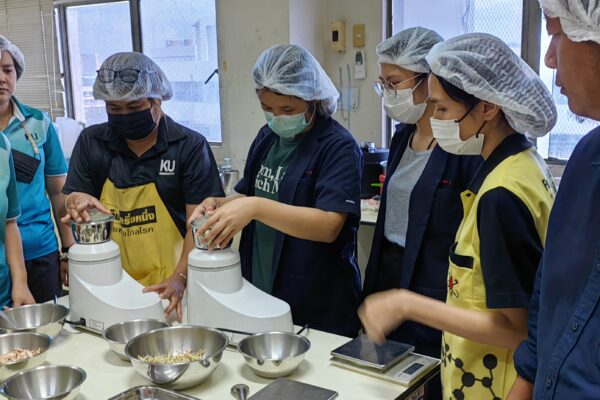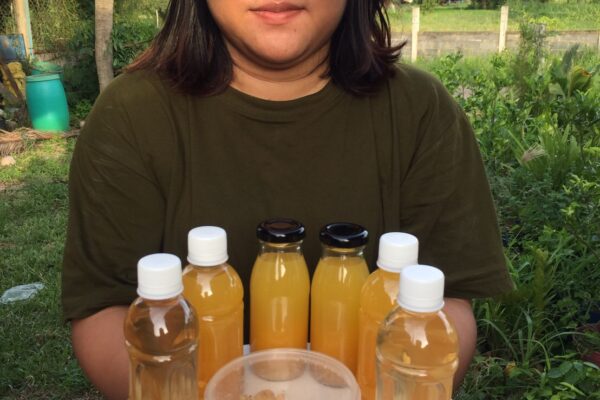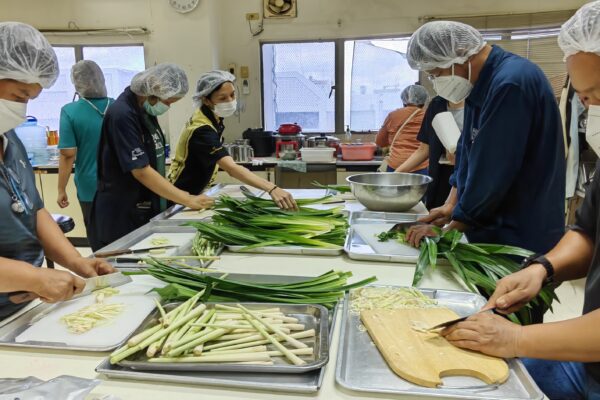Income diversification is a strategic approach that goes beyond traditional crop cultivation. It not only safeguards against the volatility of commodity prices but also promotes sustainable agricultural practices, fostering long-term viability and contributing to the overall economic health of rural communities. Recognizing this, Fairtrade NAPP in collaboration with the Institute of Food Research and Product Development has organized an income diversification workshop for minor crops that has been meticulously designed and planned based on challenges to meet the current requirements of the producers. meet the current requirements of the producers. The workshop aimed to enhance the knowledge and skills of farmers on processing the under-grade produce and other produce that is planted in homestead gardens or farms to tackle the farm production problems. This will ultimately improve the income and livelihood of 12 representatives from 6 Small Producer Organizations (SPOs) who attended this workshop.
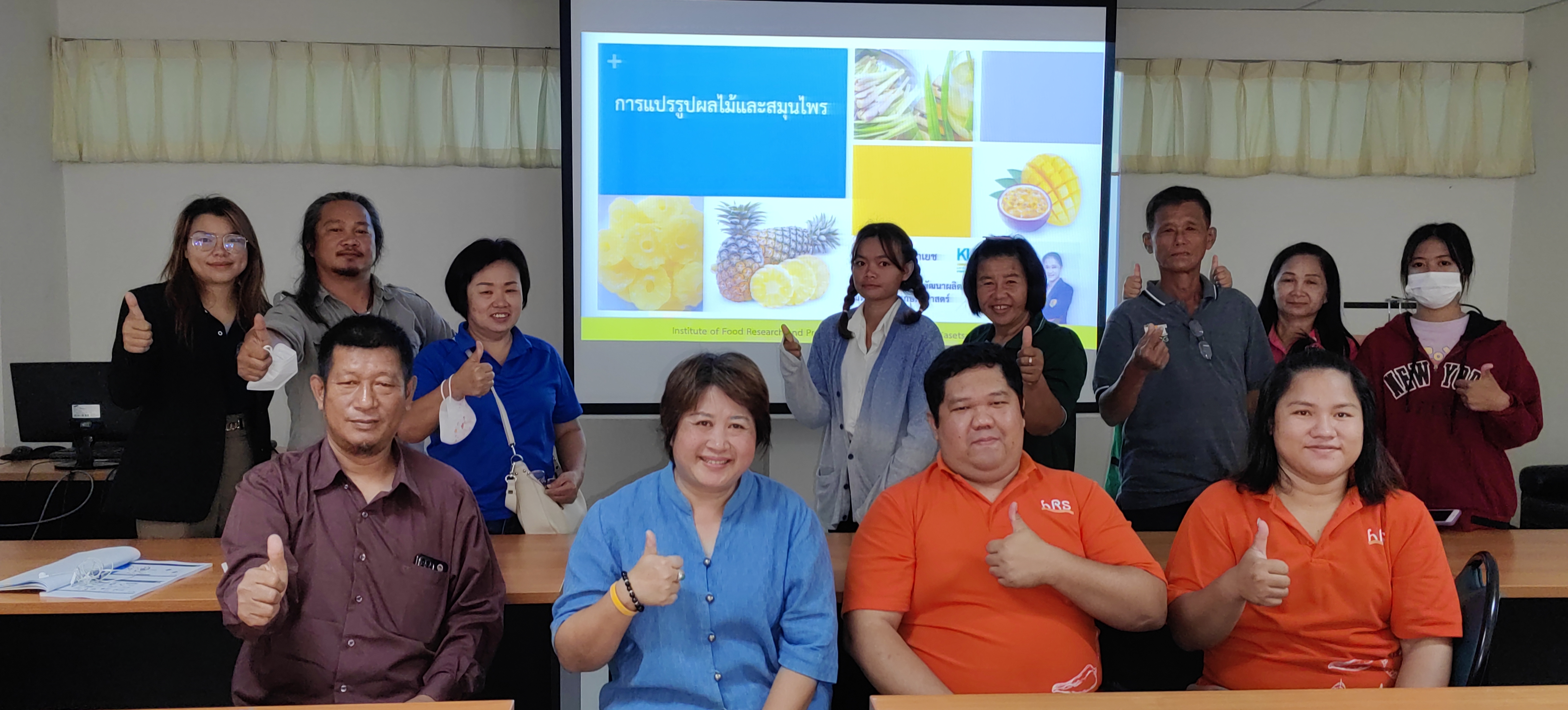
The first session explored the technical knowledge of agriculture product processing technique, fruit preservation technique, and a brief on fruit processing of various products. The fruit processing briefing focussed on Hot air-dried pineapple production, mixed fruit juice production, sachet powdered herbal tea production and pasteurized herbal tea production.
“I like the mixed fruit juice idea, which can be applied to my pineapple. We can produce pineapple juice from the small fruits that got rejected by the factory.” – Sasipin Tengpr assert, Fairtrade Pineapple Growers ‘ Group.
The second session facilitated the representatives to prepare the pineapple in the syrup, dried it in the hot air oven, and completed the final process of covering it up with different seasonings, such as icing and a mixture of sugar, salt and dried chilli. The dried pineapple was then packed in plastic containers. The representatives had learnt and practiced making the mixed juice from mango and passionfruit. In addition, the trainer demonstrated the production of sachets of powdered herbal tea. They were divided into two groups to prepare their herbal tea in sachets and to produce pasteurized herbal tea. At the end of the training course, representatives visited the university factory and observed the food processing equipment for big-scale production.
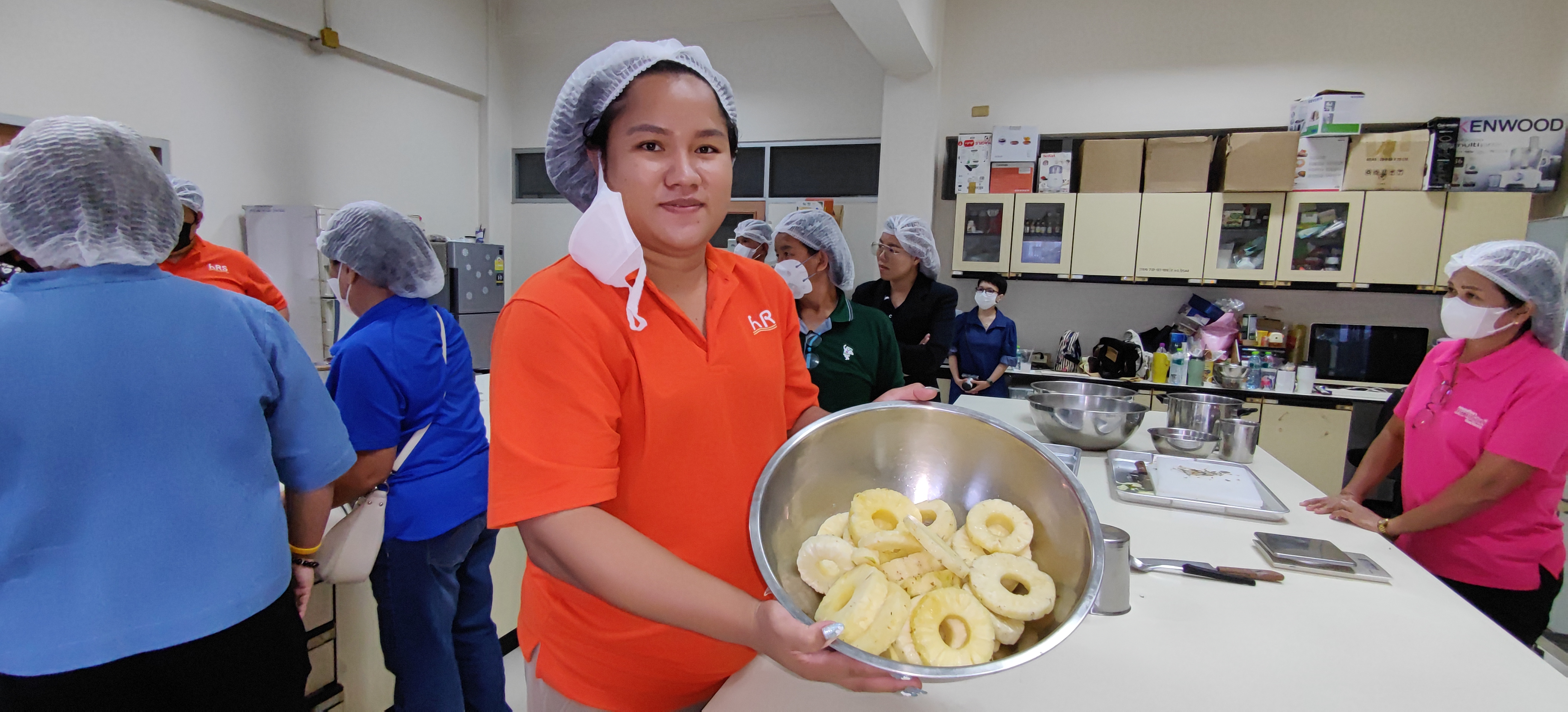
I have learned a lot from this training, and I like the taste of the mixed fruit juice. I think I can process my passionfruit and mango for selling it. It would increase our income from the undergrade fruits and other produce that we grow in our farm. – Sittichai Umput, Vegetables.” -Fruits and Processing Community Enterprise.
After the training, hot air dryer for 5 SPOs under the BMZ project. As a result, representatives acquired the expertise to innovate and create new products, along with the skills to develop effective packaging for commercial sale. Furthermore, they are empowered to share their newfound knowledge with fellow farmers to facilitate the dissemination of valuable techniques within the community. The project’s tangible outcomes include the creation and distribution of a comprehensive training manual, crafted by the trainer and provided to all participants for future training sessions within their organizations. Additionally, an actionable plan is devised to integrate the food processing program into the activities of five small producer organizations within the Farmer Training and Development (FTD) framework.


